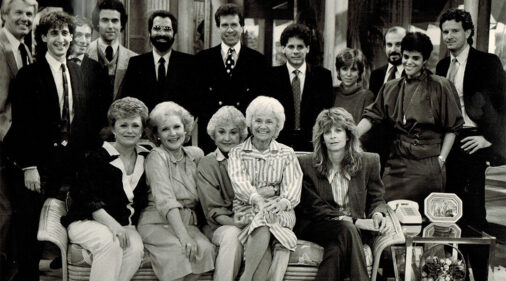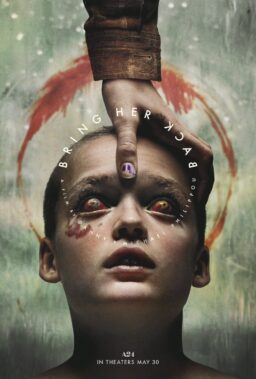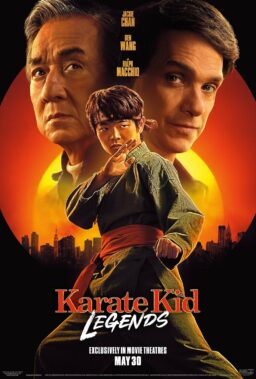NEW YORK — On the Sunday after his new movie, “The Purple Rose of Cairo,” opened to the best reviews of his career, Woody Allen moved aside his computerized Chess Challenger and curled up in the corner of a couch. We were in the screening room of the Manhattan Film Center, which is reached through the lobby of the Beekman Place Hotel, and is perhaps the only editing facility in New York with room service.
“Do you play that thing?” I asked.
“The Chess Challenger? Yeah. I even beat it sometimes.”
“You’re good at chess?”
“No. I went through a period when I was a kid, when I was obsessed with it. But now, I follow the championship, I’m interested, but I’m not good.”
“What’s the inside line on the championship?”
Allen’s voice grew confidential. “I heard by the chess grapevine,” he said, “that Karpov was just coming apart. Kasparov would have won. That’s why they called it off.”
“You’re hooked into the chess grapevine?”
“That’s what I heard.”
“So OK,” I said. “What does it feel like to make a movie where all the reviews are good, and where the New York Times calls you perhaps America’s greatest living filmmaker, and somebody else calls you our only practicing auteur?”
Woody Allen coughed.
“Is this light in your eyes?” I said. “Here, let me switch it off.”
“No, no, it’s OK. It hardly even bothers me.”
He had been sitting on his left leg. Now he swung around and sat on his right leg.
“Well, the reviews are always pleasing when they’re good, but a film also has to break even financially,” he said. “And even then, I’m cognizant of the fact that people will automatically believe bad reviews, so they can hurt you, whereas a good review doesn’t automatically help you. People tend to believe the negative. If the critic says the movie is good, they think, ‘I’ll go to it when I get around to it.’ Anyway, my films come in two categories: First, the kind where I feel I did a really good job, and achieved what I set out to do, so if it fails, I don’t feel so bad. Second, the kind where people like the film but I feel like I blew it, and I’m lucky they don’t know what I started out to make.”
“What would be an example of the first kind of film?”
“I don’t know if I’ve ever really made a film in the first category.”
“Then the second category?”
“Well, ‘Purple Rose,’ ‘Manhattan,’ ‘Annie Hall,’ about every one of them, all the way back to ‘Bananas,’ you could say people liked them more than I did. You fall into a trap. You sit here, you get the original idea for the movie, and it’s all peaches and cream. In your mind, everything works beautifully, like clockwork. Then you start shooting the movie, and, as Marshall Brickman says, the truck loaded with fresh compromises pulls up every morning. I can’t think of a film where I was truly satisfied.”
But with this one, “The Purple Rose of Cairo,” Woody seems to have come fairly close. The movie stars Mia Farrow as a screen-struck, small-town waitress named Cecilia, whose fantasy life in the local movie theater is more important to her than the drabness of reality. She goes to see the same movie over and over again, until one day, in a scene of delightful surprises, the hero of the movie looks out into the audience and starts talking directly to her.
“Gee, you must really like this movie!” he said.
“Who, me?” she says.
“I’ve seen you in the audience again and again,” he says, and then he steps down off the screen and walks over to her. That’s the beginning of a movie romance, literally; Mia and the screen idol (Jeff Daniels) walk out of the theater together, leaving the other characters in the movie (including such familiar faces as Van Johnson and Milo O’Shea) stranded on the screen without their leading man.
The movie explores the implications of this happening with calm comic logic. For example, because the movie star knows only what his character in the movie knew, he knows how to drive a car, but not how to start one. And he knows how to kiss a girl (boy, does he), but he knows no more about sex than a 1930s movie hero was allowed to know — which is that there’s always a fadeout right before the big moment. Meanwhile, the characters who were left inside the movie get increasingly restless. In Hollywood, the studio reacts with alarm: If all their characters started walking off the screen, they’d be out of business.
In a way, the situation in “Purple Rose” resembles the dilemma of the dinner guests in Luis Bunuel’s 1962 masterpiece, “The Exterminating Angel.” In that film, everybody went into the drawing room after dinner, and then discovered that they could not leave. Nothing was preventing them — but they simply could not walk out of the room. So they chopped through the walls to reach the plumbing to get drinking water, and they bedded down for the night. Days later, they were still there, talking aimlessly, like the characters in Allen’s film-within-a-film.
“Some of the reviews have said ‘Purple Rose’ is about the movies,” Allen said. “I don’t agree with that. To me, the film is strictly about reality and fantasy. Cecilia could have had fantasies about radio, or books, or those popular magazines. To use the movies is merely a visual convenience. The movie is about the fact that fantasy life is very beautiful and seductive, but you must eventually choose between the real and the fantasy. And if you choose reality, you’re submitting yourself to be hurt. But that’s what makes you human. Choice is the most human attribute, according to Van Johnson in the movie.”
“That’s interesting,” I said, “that you would attribute something to Van Johnson, rather than to the character he plays. That shows the same sort of confusion between fantasy and reality that Cecilia has, confusing the actor with the character he plays.”
“Did I say Van Johnson?” Allen said. “That’s exactly what I mean! That shows you the difference between theater and the movies. In the theater, an actor is playing a character and it’s acting. In the cinema, there’s an entirely different phenomenon. Movies are truly myth-making. John Wayne, Humphrey Bogart, Van Johnson — we went to see them living out the same myths, over and over again. You go to see your 48th John Wayne flick, and there he is, doing basically the same things he did in the other 47.”
“I’ve noticed a strange thing,” I said. “When I interview movie stars who were stars when I was growing up — people like Robert Mitchum — I feel genuine awe, because they will always be stars for me. But when I interview actors who became stars since I grew up, they’re still people.”
Woody was nodding energetically.
“I feel the same way. If I meet a Robert De Niro or a Meryl Streep, I’m thunderstruck by their talent, but I don’t feel awe. But Van Johnson was a movie star when I was a kid going to the movies. And when he came onto the set to work, he was part of my own personal history and I was so shy I could barely talk to him. I mean, I’m standing three feet away from Van Johnson! This is the guy who, when I was a kid, I could walk out of a life of tedium and drabness, and there was Van Johnson in the cockpit of a plane, or down in Argentina with Esther Williams, who was quite a dish. So maybe, that total identification of an actor with the role he plays is one of the things that ‘Purple Rose of Cairo’ is about.”
So here he was, fresh from being described as one of the foremost filmmakers of his time: Woody Allen, afraid to talk to Van Johnson. I asked him how he thought of himself as a director and who he’d compare himself to.
“I like to think of a man like Ingmar Bergman,” he said. “I’m not comparing our work, God forbid, but I’m saying Bergman was a guy who would make two or three films in the same year. Some were great, some were not. He kept working. That’s what I’m trying to do. I want to get away from that sense that every film is an Event. I want to make a film, and experiment, and if it works out, fine, and if not, here’s the next one.
“There is a current phenomenon in the movie industry where a project turns into a lifestyle. The producer is having meetings with writers, and flying from New York to L.A., and setting up offices, and establishing a cash flow, and giving interviews, and it takes three years to make the movie. I don’t work like that. I have a dingy little office. All the money is up on the screen. I pay relatively small salaries. My intent is just to keep churning them out.”
“”That makes you one of the most prolific directors in the country.”
“Yeah. You know, I think they opened a Pandora’s Box when they made ‘Star Wars.’ Suddenly it became known that there were certain rules that could be followed by clever filmmakers, and they could make untold millions of dollars. And then certain critics and national magazines all climb on the bandwagon, and you have mega-trends, and everybody’s talking about the same movie, and they’re marketing it everywhere.”
And it’s all, he seemed to be saying, the opposite of the movies he wants to keep churning out from his dingy little office.
“You know what really, really bothers me?” he said. “There was an article in the Sunday [New York] Times today, about the videocassette revolution. And how people are renting movies and bringing them home and not going out to the movie theater. It’s a sad thing. I’ll always be nostalgic for red plush carpets and getting all dressed up and feeling I can’t wait to see a new picture. Remember when it was 90 degrees outside, and you walked out of the blinding sun and paid your 20 cents and walked into the cool movie theater, and there was Louis Hayward up on the screen, and you were looking up at the gods, and you had walked from one world to another?”
“Yeah,” I said. “I remember.” And I thought, which is the greater miracle? That a movie character could walk out of a movie, or that we could walk into it?











